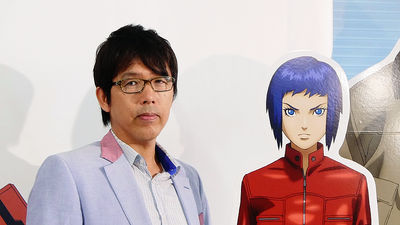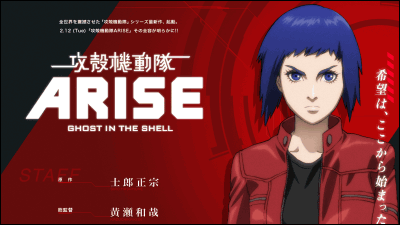Interview with Tou Ubukata, creator of the series, to commemorate the release of the complete 'Ghost in the Shell ARISE' Blu-ray box set

Based on the manga 'Ghost in the Shell' by Masamune Shirow, 'Ghost in the Shell' is a film that was released in 1995, and 'Ghost in the Shell STAND ALONE COMPLEX' and 'Ghost in the Shell SAC 2nd GIG' were broadcasted and streamed from 2002. 'Ghost in the Shell ARISE' (border:1-4/PYROPHORIC CULT) tells the story of the formation of Ghost in the Shell, and 'Ghost in the Shell New Movie' is included in the ' Ghost in the Shell ARISE/New Movie Blu-ray Box ' which was released on Friday, December 22, 2017.
To commemorate the release of this memorable item, we spoke with
Ghost in the Shell Information Site
https://v-storage.bandaivisual.co.jp/sp-site/ghost-in-the-shell-special/
GIGAZINE (hereinafter, G):
Before the release of 'Ghost in the Shell: The New Movie,' I had the opportunity to speak with Ubukata-san together with Director Kazuya Kise, so this time I hope to be able to ask him a few questions that don't overlap with those we spoke about then. Thank you.
'Ghost in the Shell' can absorb a variety of things, interview with Kazuya Kise, general director of the new movie version of Ghost in the Shell, and Tou Ubukata, screenwriter - GIGAZINE

G:
As written in ' Ubukata Tou's This is Shibuya Police Station Detention Cell ,' Ubukata was arrested in 2015, spent nine days in detention, was released, and was not charged.
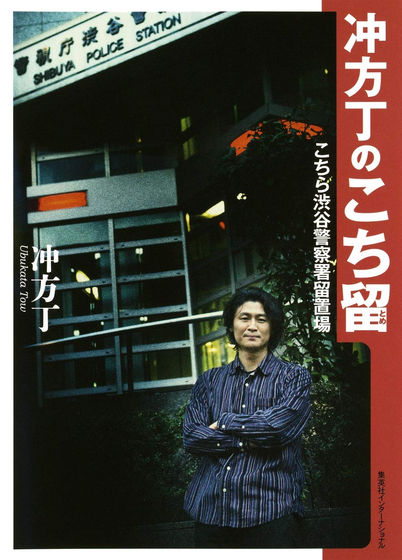
G:
This was after 'ARISE' and the new movie had been released, and it was truly your experience of 'this is what public authority is like.'
Tou Ubukata (hereinafter, Ubukata):
Let's connect that... (laughs)
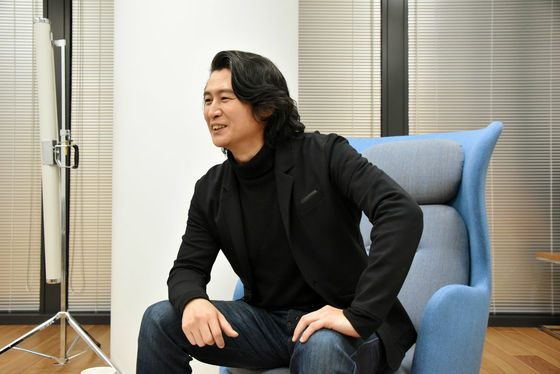
G:
With that in mind, if you had had this experience before 'ARISE: The New Movie,' was there anything you could have reflected in the work?
Okada:
To begin with, the origins of Public Security Section 9 in 'Ghost in the Shell' show a certain level of suspicion towards the police. In that respect... I think you wrote something pretty accurate.
G:
(lol)
Okada:
Rather, I didn't think it was wrong, and that it was so accurate. I thought it was fiction (laughs). When public authorities do not look to the citizens or the people, but instead focus on their own survival, they gradually stop doing 'what they should be doing.' Instead, Public Security Section 9 breaks through political circumstances and does what they really should be doing. I felt that 'it's because of these guys that the story works,' and I was very encouraged. 'That worldview wasn't wrong,
(Everyone laughs)
Okada:
However, if they deny the power itself, the state will collapse, so they cannot destroy it, and they have to carry out a good 'surgery'. Public Security Section 9 is amazing at what they do, as depicted in the original work, the movie 'Ghost in the Shell', and the TV series 'Stand Alone Complex'. In that respect, I think it was good that I was able to write Section 9 in 'ARISE', which is still clumsy and immature, such as hitting people who don't need to be hit.
G:
I see. What Ubukata wrote wasn't too far off compared to what I had seen.
Okada:
That's right. Japanese people tend to get carried away with national media strategies. When we watch TV dramas where the police and prosecutors cooperate, we think, 'That's wonderful!', but in reality, there are no people like that. However, I'm surprised that this is surprisingly not the case. When the police receive a report, they can be very happy, depending on the case.
G:
It's exciting (laughs)
Okada:
It seems that every year, there are certain cases that are considered to have high points. For example, bank transfer fraud is a high-point crime, so people are prepared for it, but if the points are low, it's not so bad. However, if there are a number of cases where people get involved in crimes after running away from home, and public opinion becomes that 'running away from home is dangerous,' the points for running away from home become high.
G:
It depends quite a bit on what's going on in the world.
Okada:
I thought it was good that I wrote characters that transcend the movements of public opinion, and I want to continue to write them in the future. I felt that this was not a mistake.
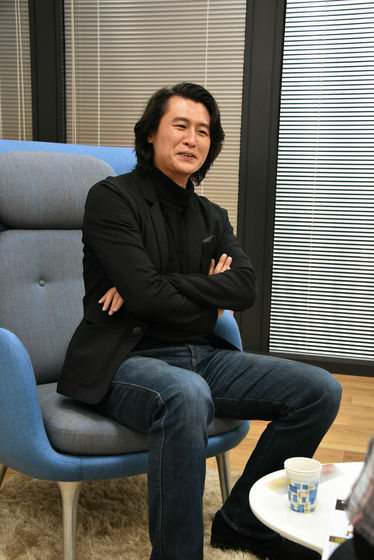
G:
When did you first come across the original Ghost in the Shell, the manga that created those characters?
Okada:
I think I bought it at a used bookstore when I was about 16. I had originally read Shirow's works ' Appleseed ,' ' Senjutsu Choukaku ORION ,' and ' Dominion .'
G:
I read most of it lol
Okada:
However, I guess it was a used book because 'Shiro-sensei's book is too expensive to buy!'. Since the movie ' Ghost in the Shell ' was released in 1995, it has been treated as a textbook, with people saying 'this manga gave birth to that movie' (laughs). I studied it diligently, wondering 'how people who read the original work after watching the movie felt.'
G:
What did you mean by 'studying'?
Okada:
I took out lines and tore them apart, organized the entire structure and thought, 'Wow, it was all so cohesive,' and how to combine this idea with that idea... I studied a lot of things. The number of characters, too. I probably studied 'Ghost in the Shell' too much here, so my 'sense of density' is off (laughs). I was definitely influenced by it, and when I wrote a novel, I was told, 'Your novel is like concentrated Calpis, so dilute it.'
(Everyone laughs)
G:
I see, so that's why it's packed like the manga 'Ghost in the Shell.' That makes sense.
Okada:
I've always wondered if that's true (laughs), but it's scary how once something is ingrained in you as a teenager, it becomes common sense.
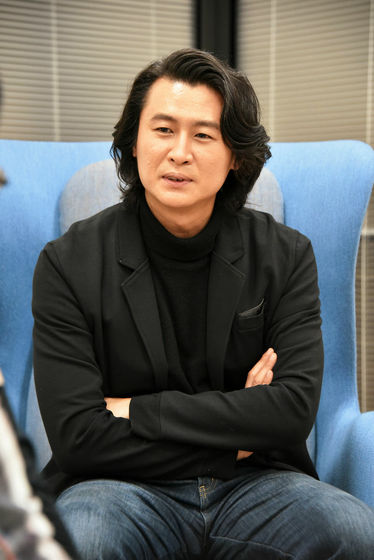
G:
In a 2010 interview with WEB Books magazine , you said that you attended Kawagoe High School, the model for 'Water Boys,' and that you were a member of the art club and the virtual reality club. Why did you join these two clubs?
Okada:
Ever since I was about 16 or 17 years old, I had wanted to make a living in the entertainment industry, so during my summer holidays I would visit anime studios and publishers, interviewing people and asking them how I could make a living.
G:
What answer did you get?
Okada:
For example, Tomomitsu Mochizuki , the director of ' Ocean Waves ,' gave me advice saying, 'Because recruitment notices are published in anime magazines.' People from publishing companies told me, 'Newcomer awards are generally like this.' I also sent a letter saying, 'What kind of industry do you think the anime industry will be in the future?' and received a reply from Isao Takahata saying, 'This is what it's like, so do your best.'
G:
What!
Okada:
It didn't say 'Ghibli will hire you' (laughs). I also received a long reply from voice actor
G:
It's a very strict club.
Okada:
We would think about what level of work is necessary to receive the Newcomer Award, and we would criticize each other for what was no good about it, but when young people do this together, it usually turns into personal attacks, and it became very tense.
(Everyone laughs)
G:
It's a bit awkward, but you still do it (laughs).
Okada:
After it was over, I was disappointed, so I used that as motivation to do something better next time, and spent the next three years just training (laughs). When I graduated from high school, I wrote a novel with the idea of 'seeing if I can win an award,' and as a result, I was able to make my debut as a novelist.
G:
It seems like you had a very intense high school life.
Okada:
As part of my training, I did a lot of copying. I copied a lot of lines and narration from various novels and manga, and what I felt was that 'Ghost in the Shell' is unique. It has cyberpunk, cyborg action, detective stories, dystopia... It's so well balanced that I wondered, 'Why did you mix it all together?'
G:
I see.
Okada:
That's how 'ARISE: The New Movie' ended up being something that 'had become ingrained in me.' So when I look back at 'GHOST IN THE SHELL' and 'STAND ALONE COMPLEX,' everyone was free to do whatever they wanted.
(Everyone laughs)
Okada:
For example, 'Public Security Section 9'. In 'SAC', we're going to focus on all the members, so even characters who only appear in one panel in the original work are well-characterized, but in 'GHOST IN THE SHELL', they're cut out completely, and it seems as if the Major's only companions are Batou, Togusa, and Ishikawa, and they don't even appear in the frame. On the other hand, all the cool lines are taken at this point (laughs). Furthermore, in 'SAC', the up-and-coming young people put their libido and philosophical spirit into it to the fullest, and then they do what they want without being scolded too much. But by the time we get to 'ARISE', everyone has the attitude of 'I have to do it'.
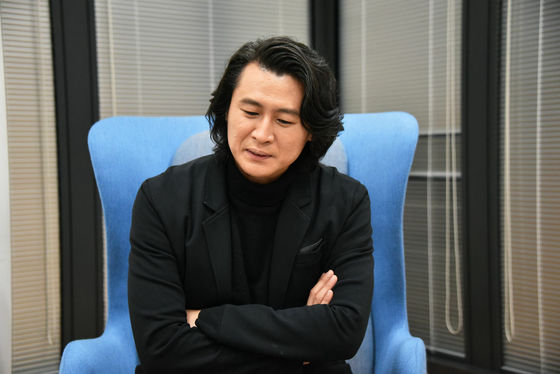
G:
The premise was different from your previous works.
Okada:
'My successful experience is like this,' is already established, and I myself am trapped in the idea that 'Ghost in the Shell is like this'... In that situation, Director Kise was free to do what he wanted. He told the animators, 'I want someone who has never seen SAC to draw it,' but there is no such person! (laughs)
(Everyone laughs)
Okada:
He said, 'I told them I didn't need to study SAC or GHOST IN THE SHELL, but everyone still watches them.' It may seem like a free spirit, but he believes that it's more important to have a sincere attitude towards manufacturing.
G:
Earlier, you mentioned that you would copy artworks that you liked. It seems like you are internalizing them by copying them. What made you start doing this?
Okada:
I wonder what it was... When I was a child, I lived in Southeast Asia due to my father's work, and since it was hard to get entertainment, I would go and borrow comics and videos from kids who had them, and then I would copy everything I borrowed and return it.
(Everyone laughs)
Okada:
On the other hand, when my friends got Japanese comics or videos, the text and dialogue were naturally in Japanese, so they would say, 'I don't understand it, so you translate it,' so I would then translate everything into English and give it to them, so I think it probably became a habit.
G:
(laughs) It's become a habit. Do you still copy things you like these days?
Okada:
I don't have much time, so I do it occasionally. For example, I've always loved
G:
(lol)
Okada:
Another one is Stephen King 's ' Mister Mercedes .' The opening scene is awful. The viewpoint character is a man who is lining up at an employment office early in the morning, and in front of him is a woman who is standing there coughing while holding a baby. They lend each other blankets and say, 'Let's try to survive somehow,' when Mercedes comes running and kills everyone.
G:
It's crazy (laughs)
Okada:
There was a scene where a woman was run over and killed her baby, and I thought, 'I can't do this.' It made me realize that I still have a long way to go and that I need to learn more about how to express the darkness in these crazy ways.
G:
I'm sure you're always conscious of deadlines in your work, but do you have any techniques for working in order to meet deadlines?
Okada:
I have a habit of working to deadlines, and if there isn't a deadline I just keep writing forever.
G:
To say it will last forever is amazing.
Okada:
Rather than being told whether I met the deadline or not, I was told off because I sent it before the deadline but it was about three times the amount of pages required (laughs).
This episode of Ubukata getting scolded for writing too much also appears in the afterword of the novel ' Chaos Legion .'
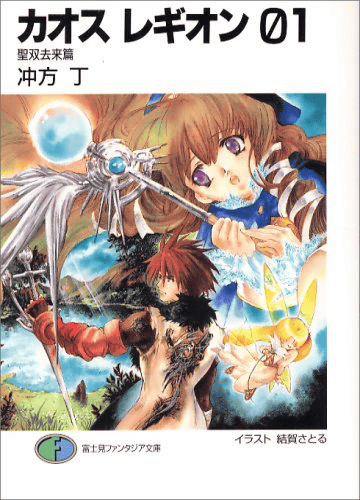
G:
Of course, even the recipient would be surprised if it was three times the normal amount. Three times the amount required! (laughs) Apparently, he was even scolded for 'writing too much.'
Okada:
In the case of ' Tenchi Meisatsu ,' I was serializing it in the magazine ' Novel Wild Times ,' but the first episode had reached 250 pages of manuscript paper, so I was told that it 'won't be published.'
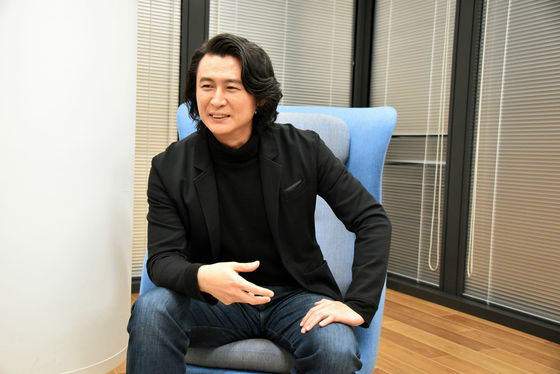
(Everyone laughs)
G:
I heard that the script for 'ARISE' was quite lengthy...
Okada:
I don't do this in all media (laughs). In the case of anime, there is a conversion called 'number of pages,' and roughly one page is equivalent to about one minute, but in the case of 'Ghost in the Shell,' there is a lot of information and a lot of dialogue, so there are cases where a script that would normally fit in one minute doesn't fit. So how much does it go over? It depends on the director, some people cram it in tightly, and others spread it out with gaps, so it's not constant. In addition, I was in a situation where I had to write scripts one after another, but
G:
Two drafts seems a lot quicker.
Okada:
I sometimes think there are still some areas that can be trimmed down, but maybe they just want to get started on the animation as soon as possible.
G:
So, rather than being 'chased by deadlines,' you feel like 'there is a deadline, so I'm stuck there'?
Okada:
When the deadline comes, I have to stop writing. It's a deadline, so I try to get the work done by then somehow.
G:
In the interview mentioned earlier, you said about reading the materials, 'I used to read each book carefully, but I've gradually become good at 'reading the cardboard'. I skim through it and extract the necessary parts.' What kind of materials did you read when you were working on 'ARISE / New Theatrical Edition'?
Okada:
Since the world depicted in 'Ghost in the Shell' is a little closer to the real world, I wondered how much technology would develop in the future and read through various science magazines. I extracted a lot of ideas, but most of them were shelved because they 'won't become an anime.'
G:
It somehow seems like a waste.
Okada:
There was no 'picture.' For example, a fully autonomous car is visually uninteresting because there is nothing inside. The roads are just street lights. When hackers use AI, there is nothing moving, and at best the access lamp flashes. When it comes to optical camouflage , everything disappears.
(Everyone laughs)
Okada:
The more I studied digital technology, the more I fell into the hole of 'I have nothing to draw, what should I do?'
G:
The meaning of 'unfilmable' changes.
Okada:
In that case, the only thing we can do is make the virtual reality world fun and interesting based on human hobbies. For example, cyborgs modify their bodies out of their own volition even though they don't need to. Realistically speaking, it would be easier to replace cyborgs if they all looked the same, because they would be standardized.
G:
That's a bit blunt (laughs).
Okada:
If that happens, we end up with a depiction like the Clone Wars in Star Wars, where identical battle droids and identical clone troopers fight. I thought it would be better to have something creepy like the dog-shaped robots that the US military is testing, with no head or tail and only a torso and legs to carry things, but that doesn't fit the world of Ghost in the Shell either. But thanks to you, I've been able to answer scientific interviews.
G:
In an interview, you said that the reasons you worked for a game company were, first, because you wanted to gain experience in a company and in society, and second, because you wanted to study computers. Do you still follow IT news and acquire knowledge about it?
Okada:
Recently, I've been a bit lazy, so I've been listening to people who continue to do things like that. Cutting-edge things are becoming more and more complicated, and it's true that the more advanced something is, the more likely it is to break, so I ask people who have used it a lot and broken it, 'How was it?' When it comes to PCs, I feel like I'm following the leader in the slipstream, two or three steps behind. 'They changed the specifications to that extent for Windows 10. I can't handle it!' (laughs)
G:
You use a PC to write your manuscript, right?
Okada:
That's right. Recently I've been using an app called GoodNotes 4 on my iPad, which was developed by an American editor. With GoodNotes 4, I can write the composition by hand on my iPad, so I don't need copy paper anymore! (laughs)
G:
Had you been using a lot of copy paper up until then?
Okada:
There were so many things to do, such as checking the galley proofs, and I wondered how many times we had to print, and I can't count how many times my bag broke from the weight of the stacks of paper...
G:
The weight of the stack of paper...
Okada:
After about half a year of use, the seam of the handle would snap off. Paper is heavy and sharp, so the corners of the bag would gradually tear. So I put PDFs into a file management software on my iPad to manage my manuscripts. It's super easy.
G:
The style has evolved steadily.
Okada:
I use a programming editor, which is super convenient for making plots.
G:
Is it for programming?
Okada:
Since all programming editors allow you to separate the upper and lower structures, it's very convenient to edit the 'main theme,' 'characters,' 'description,' and 'detailed content.' I tell people who are knowledgeable about programming, 'If you come across a good editing software, let me know.'
G:
With that momentum, you might find yourself in the lead before you know it.
Okada:
No, no, the people at the forefront will develop their own editor software and start doing things like 'This is how you should do it to incorporate it into Windows 10.' I don't want to go that far (laughs).
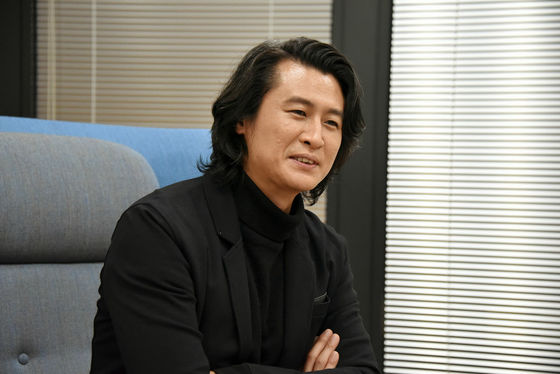
G:
Speaking of technology, you wrote, referring to your youth, 'If Photoshop had been available back then, would I have used it? Or would I have given up sooner and started writing novels? Is blogging a way to make material out of even the embarrassments of your youth?' How do you think you would have been different if you had spent your adolescence in modern-day Japan?
Okada:
I wonder... I had no intention of writing a novel in the first place, but before I knew it, I was writing one, so it wasn't my choice. I guess you could say I 'made up my mind on my own.' Even though I was the head of the art club, I was writing sentences like 'What is the meaning of the pictures I will be drawing from now on?'
(Everyone laughs)
Okada:
My advisor told me to hurry up and draw it (laughs).
G:
I will say that (laughs).
Okada:
So I was told, 'You're better suited to writing,' and I was like, 'Huh!' So if I'd had Photoshop or a tablet when I was in middle school or high school... I would have stopped buying them because even white paper was too expensive. In the past, I would have stacked thin
By the way, here is the hardcover version of Ubukata Tou's debut work 'Black Season'. The cover illustration is by Amano Yoshitaka! pic.twitter.com/Hqz6HQtmNB
— Kadobun (@KadokawaBunko) August 24, 2016
(Everyone laughs)
G:
As for the heartbreaking events, you wrote on your blog, ' I copied the first volume of 'Berserk' and it broke my heart so I gave up on being a manga artist, ' and you published a picture of Guts with a large sword on his back. This was also shown in a project called Manga Love on NHK, but what made you decide to copy that scene?
Okada:
I tried to replicate not just that scene, but the entire first volume. When I tried, I came to the conclusion that I gave up.
(Everyone laughs)
Okada:
I mentioned that white is expensive, but no matter how much art supplies I buy, it's never enough, so I started drawing with ballpoint pens halfway through. I was like, 'Who can I buy a G pen ?' (laughs). When you love something, you want to chase it and surpass it someday, and that in itself is motivation. It's still the same with Stephen King. But when it comes to the world of art, I think I got fed up with it halfway through. When I copied King's novels word for word, I didn't think, 'I'm not going to write anymore.' Although I did think, 'It's long! Finish it quickly!' while I was copying.
(Everyone laughs)
G:
Mr. Ubukata, you can speak both English and Japanese, but do you transcribe the material, including King's, in Japanese?
Okada:
Japanese. Just before my debut, I was told, 'Your writing sounds like a translation of English,' and it hurt my feelings. So, instead of putting the subject first like in English, I basically copy foreign literature that has been translated into Japanese, in order to learn expressions that are unique to the Japanese language. When I copy, I write horizontally even if it is written vertically. I have to be a little creative.
G:
What is the reason for this innovation?
Okada:
Gradually, it becomes like automatic writing, copying while half asleep.
(Everyone laughs)
Okada:
Sometimes I'll get about three pages in and suddenly realize I can't remember what happened, and it'll just be like I've copied it.
G:
Is it like memorizing the text as you copy it?
Okada:
If I don't like a sentence partway through, I'll sometimes think, 'Perhaps 'da' would be better than 'dearu' here,' and rewrite it myself.
G:
That's interesting. You have experience working in a variety of genres, including novels, anime, games, and manga, but having actually experienced each of them, was there any difference in the way you wrote?
Okada:
Nowadays, the technology to 'reproduce what has been done in one medium in another medium' has advanced tremendously.
G:
What is it?
Okada:
For example, there is a scene in 'The Lord of the Rings' where a large army attacks, and I think that in the past it would have been impossible to express that in live action. However, nowadays, thanks to the development of technology, it is possible to express an army of about 100,000 people. In the past, when 'adapting a novel into a movie,' I think there was a way to cut out parts that were difficult to film, or in some cases, to cut out parts from the novel to make it easier to film (laughs). However, in today's world, where 'if you don't keep doing things that the other party can't do, you'll be defeated by the other party,' I think that not only in film adaptations, but also between media, there is a good sense of competition between each other, with people saying things like 'I'll do it before they do it,' and 'If they do it, I'll return the favor like this.'
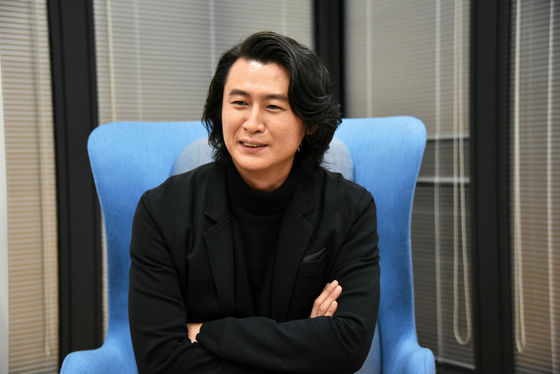
G:
Even in 'ARISE: The New Movie,' were there any parts where you felt like 'doing something before you get done'?
Okada:
In 'ARISE: The New Movie,' when my opinion wasn't accepted in a meeting, I would say, 'I see, then let's write that in the novel.'
(Everyone laughs)
Okada:
There were parts that were 'difficult to make into an anime' or 'due to the length, I couldn't fit them in,' so I thought I would write them myself eventually. However, when I was working on 'ARISE,' it was so hard that I just had to work hard to finish the job as soon as possible (laughs). To begin with, it was hard to even get started...
G:
What were some of the difficulties you faced when starting this project?
Okada:
First, we had to gather everyone's opinions. Everyone had their own success stories and things to say, and we even had to talk about the old Ghost in the Shell, so we were like, 'Are you saying we should make it again?'
(Everyone laughs)
Okada:
It was hard for me, including myself, to break through that barrier. After all, I'm the kind of person who would copy out the lines from the original work, even the ones in the margins, and think, 'This is also part of the story' (laughs). When I think about it, I'm impressed with myself for being able to make 'ARISE: New Theatrical Edition' while carrying the 'successful example of the past.' Now that the next baton is ready, all that's left is... 'The next person who picks this up will be in trouble.'
(Everyone laughs)
G:
Last question. In 2014, Ubukata
Okada:
Basically, you can do what you like with derivative works, but when you create derivative works, you're standing in front of a line of bigwigs from companies telling you to 'make a sequel,' so there's a big difference. Because it's a job, you have to do 'what people like,' not 'what you like.' You have to think about 'how can I make this enjoyable,' and keep the next generation in mind.
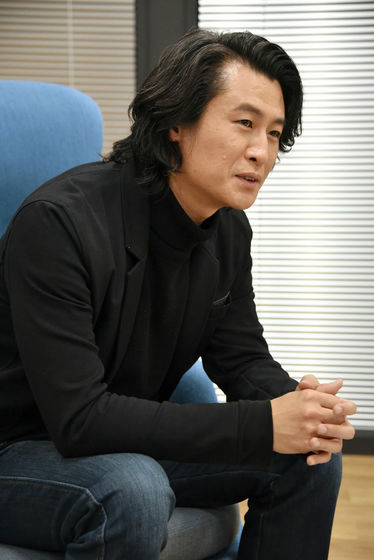
G:
The next generation?
Okada:
Today's teenagers have different assumptions than us. They've had the internet since they were born, so even if you say ' The internet is huge ,' they'll just think 'Of course!' (laughs) My 'job' is to think about how to communicate with that generation. That's why it's easier to write derivative works. Because I can write what I want to do (laughs).
G:
That's the truth (lol)
Okada:
So with 'ARISE: The New Movie,' I worked hard as a craftsman from start to finish.
(Everyone laughs)
G:
thank you very much.
The '
In addition to a 20-page special booklet, the video extras include the 3DCG short animations 'Logicoma Beat,' 'Logicoma Coat,' 'Logicoma Heart,' 'Logicoma Route,' and 'Logicoma Note,' as well as 'Kyuuka Co., Ltd.', a special announcement video, trailer, promotional video, and TV commercial for the new movie. The audio extras for the new movie include an audio commentary by general director and character designer Kise Kazuya, cinematographer Tanaka Hiroshi, director Itakada Shinji, director Horimoto Noriyuki, director Kono Toshiyuki, and anime critic Fujitsu Ryota.
Inner jacket 'ARISE' designed by Kise
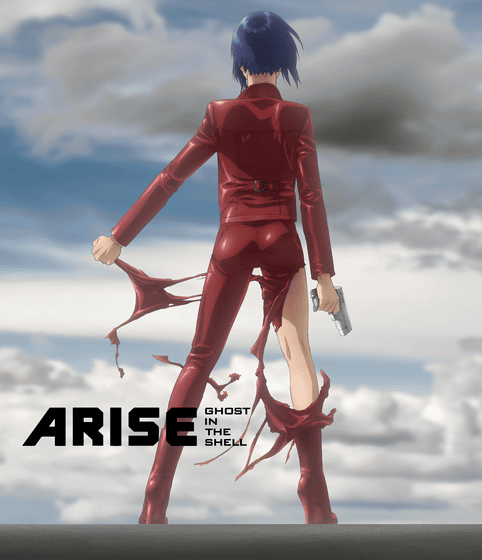
Inner jacket 'PYROPHORIC CULT'
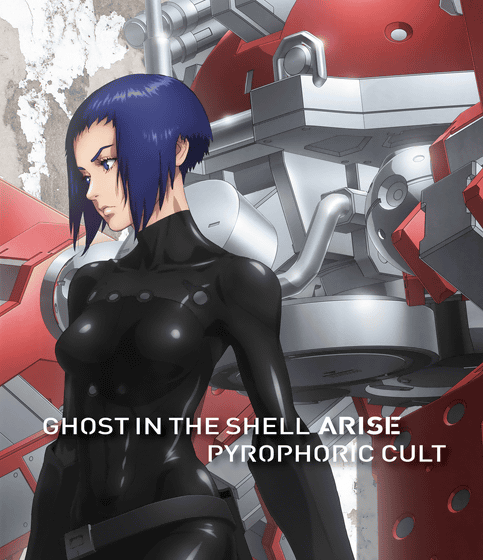
Inner jacket 'New Movie Edition'
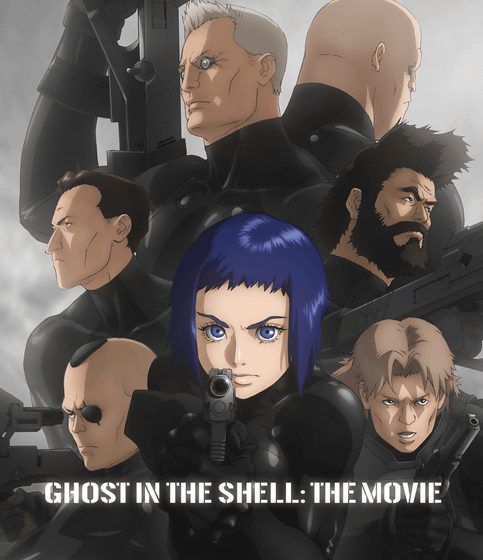
©士郎正宗・Production IG/講談社・「攻殻機動隊ARISE」製作委員会
©士郎正宗・Production IG/講談社・「攻殻機動隊 新劇場版」製作委員会
Related Posts:


